What a journey it must have been. Stepping aboard the Mayflower merchant ship in search of a new life. What must have been running through their minds?
400 years ago, on the 16th September 1620, 102 passengers left Plymouth on a cramped, creaking square-rigged merchant ship, the Mayflower, in search of a new life in America.
There’s no need to wonder what it must have been like. With today’s technological developments, you can experience that very departure for the first time yourself.
The Mayflower
After two failed attempts, they finally set sail from Plymouth on the 16th September, 1620. Enduring 66 days at sea in horrendous conditions, all 102 passengers eventually made it to America.
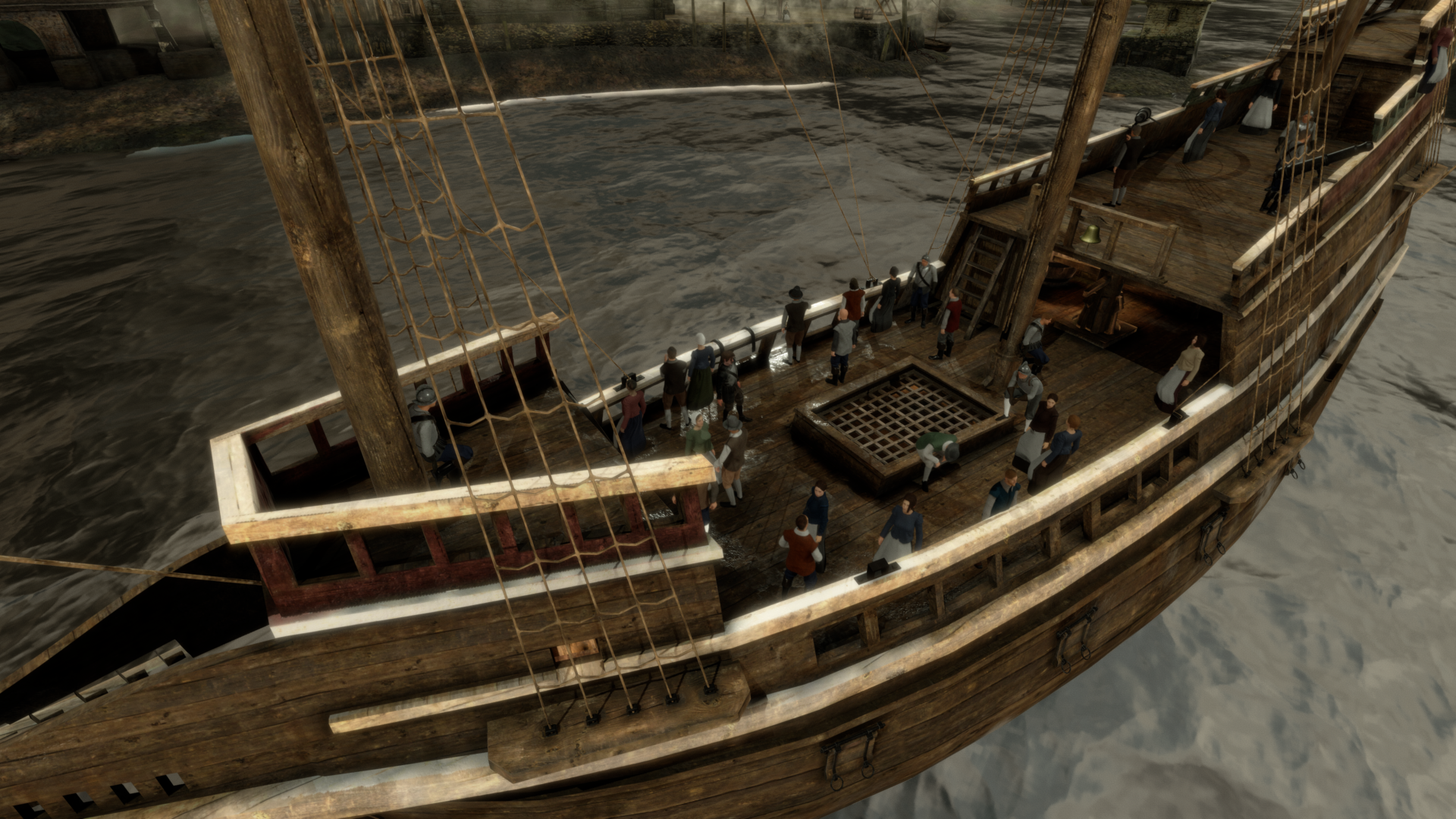
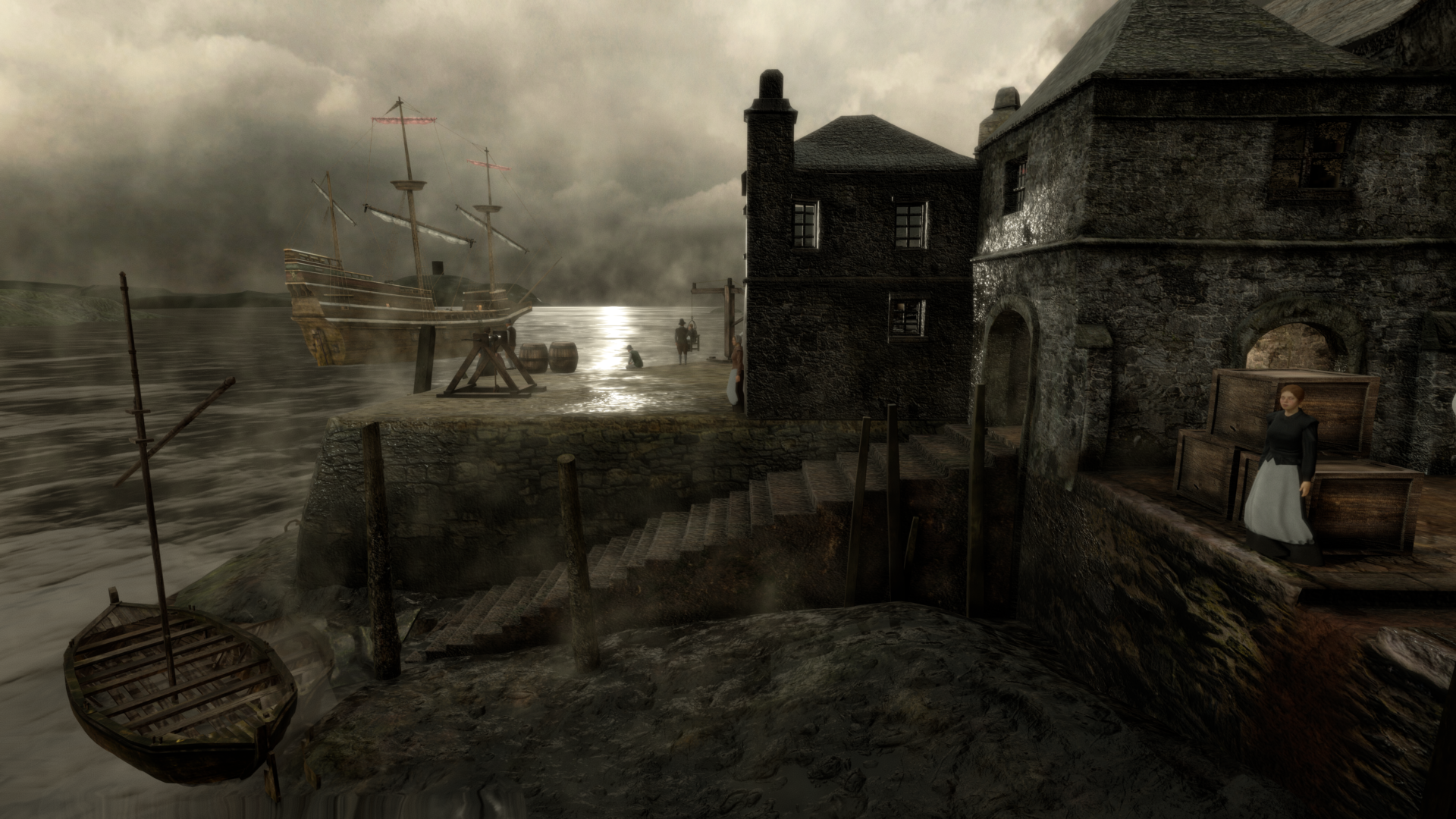
Bringing history to life
Working with Professor Bob Stone from Birmingham University and his team, the Virtual Mayflower has been brought to life, along with a 3D recreation of the Barbican in the 1620s.
Six years of enthusiasm and dedication from a small, but highly experienced team of 3D and virtual reality (VR) and augmented reality (AR) specialists have brought the project back to life.
As the years went by it was discovered that not only was the Mayflower important, but so was the Barbican. Slowly, the project evolved from just being about the Mayflower, to then also incorporating a 1620s ‘Virtual Barbican’.
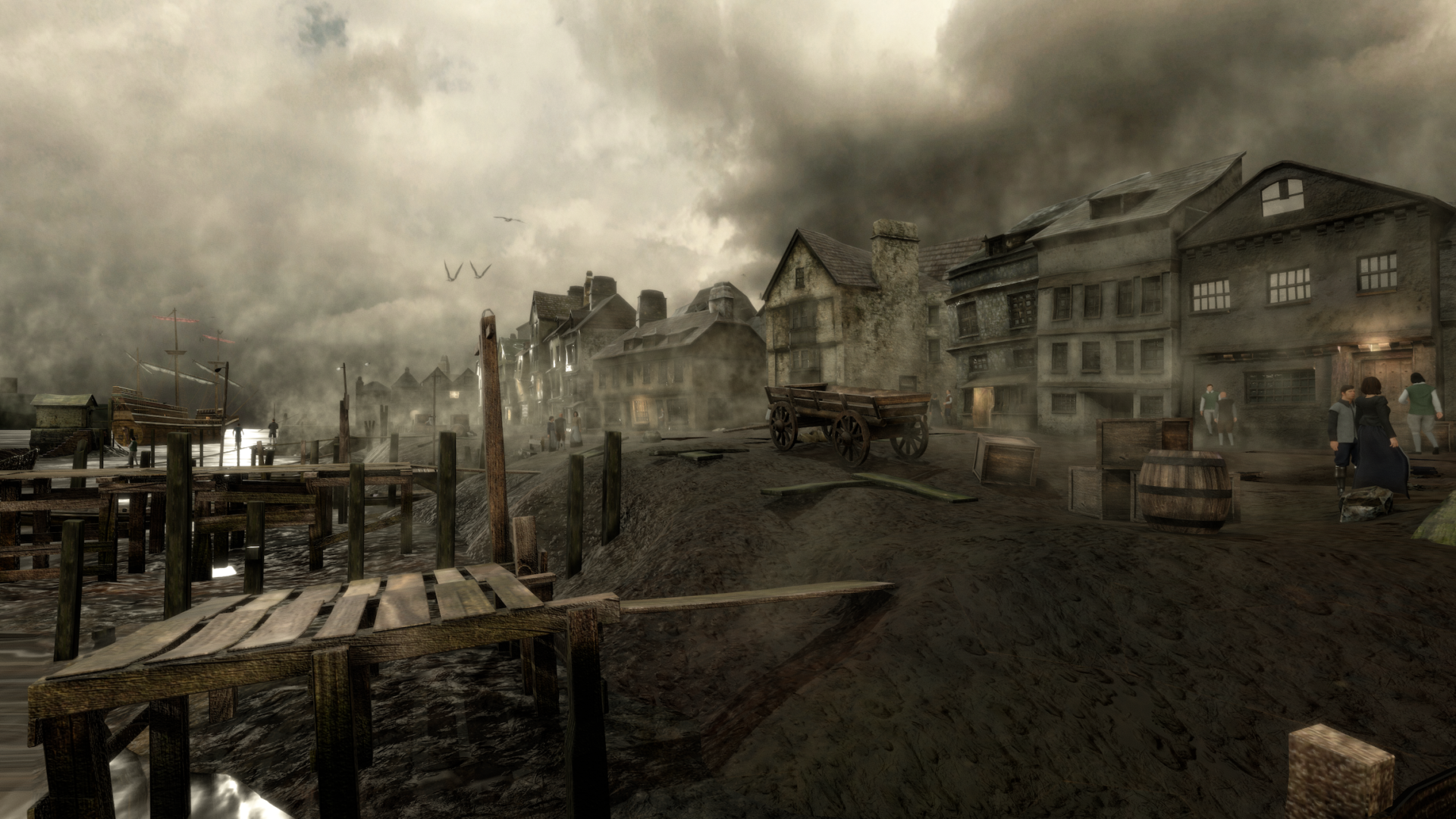
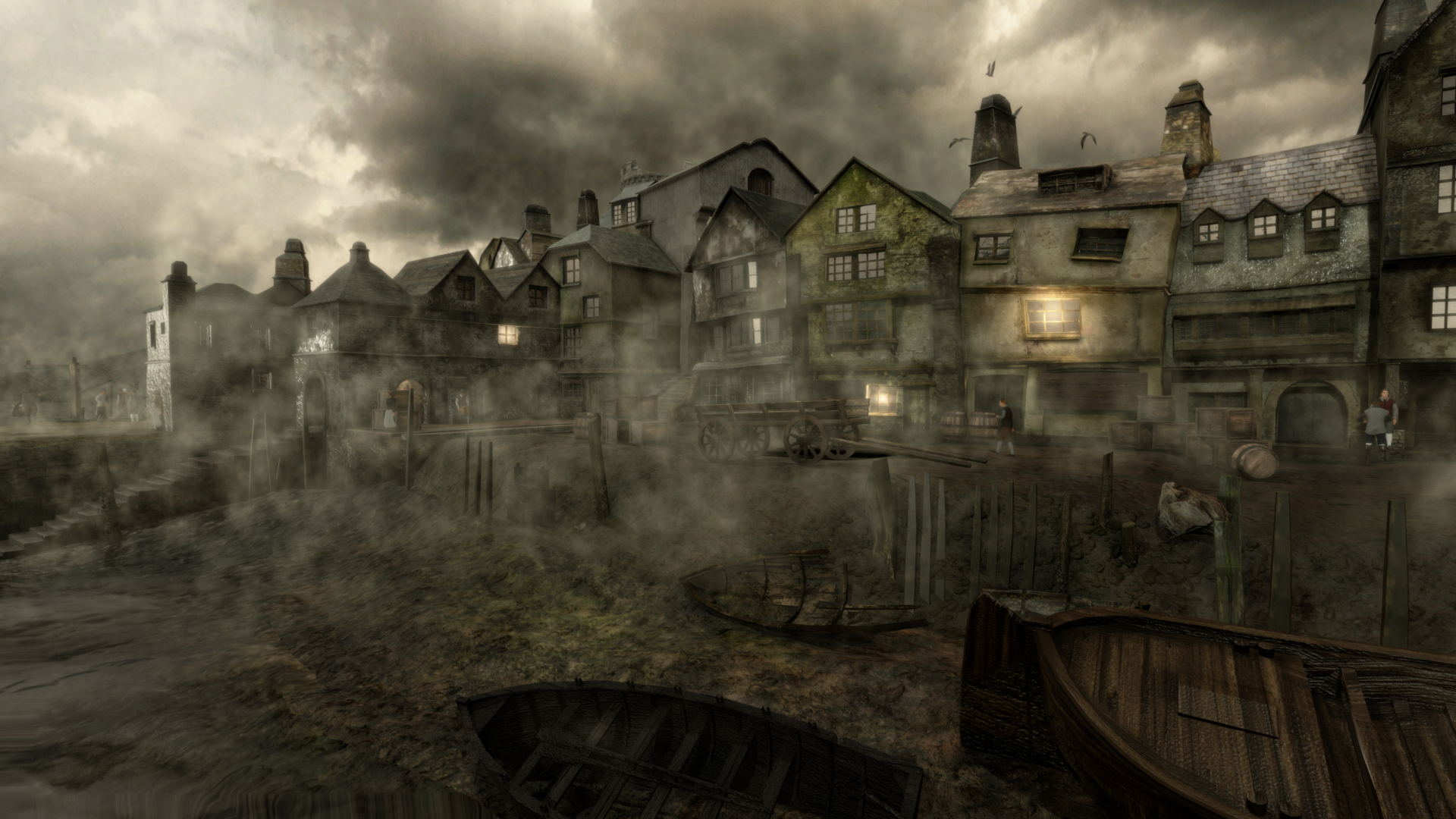
Today, the Barbican houses cafes and bars along its cobblestone streets and is usually bustling with people socialising. But back in the 1620s you can only imagine what it must have been like…people saying their goodbyes to board ships to discover and explore new lands.
Why the Mayflower?
The overriding ambition for the virtual Mayflower Project was always one of supporting education, outreach and public engagement.
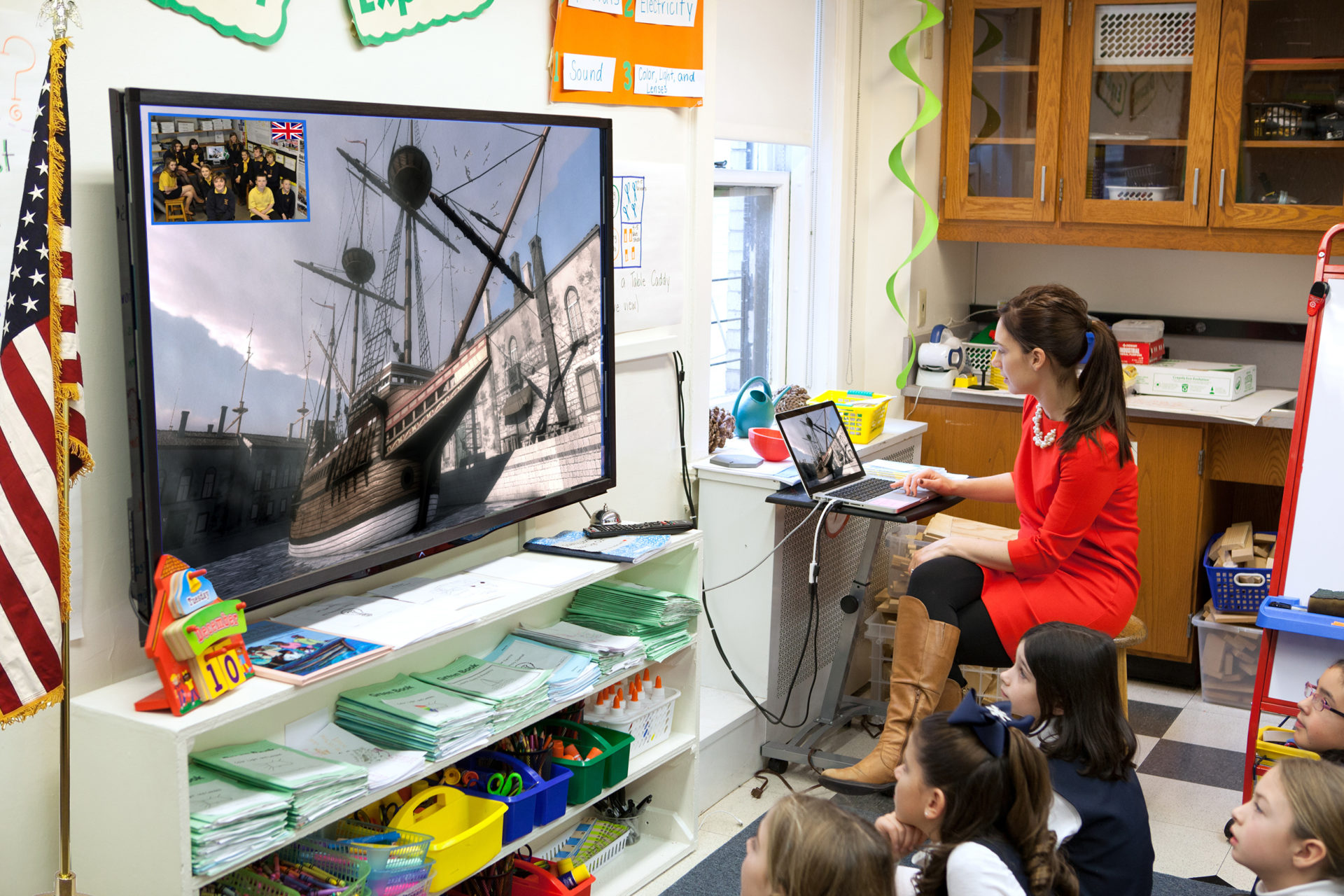
With strong connections to Plymouth, it’s a project that Bob, his team and us here at Bluestone360 felt strongly about, especially as 2020 marks the 400th anniversary of its departure.
During these past six years, Professor Bob Stone and his team have had the opportunity to introduce the Mayflower story to a wide range of people, across all walks of life showing the benefits of VR and AR technologies in education.
Those who have participated and experienced the work include teachers and young school children in mainstream and special needs schools, the scouting movement (Brownies, Guide and Cubs), senior citizens, including veterans from previous world conflicts, and specialists from historic and technology-based organisations, to mention but a few.
Introducing ‘Virtual 1620’
Although the project has been designed to eventually allow wearers of VR headsets the freedom to explore both the historical Barbican and parts of the ship, for those without access to such technology it was obvious that the project needed a space of its own, preferably online, with a degree of ’employability’ made available to visitors.
If you visit the website, you can read lots more information about the project and what went into it. Our hope is that the reconstruction of this important historical event provides a legacy contribution to the 400th year commemorations and inspires future generations of creative media students.
Plymouth may be small, but it has some rich history to explore. Travel back in time to a world before technology and a time of real adventure, click here.
Follow the virtual journey over on Facebook, Twitter and Instagram.
If you’re interested in bringing a project to life you can read more about our AR and VR services here. We can work on various projects from virtual heritage, training and health.